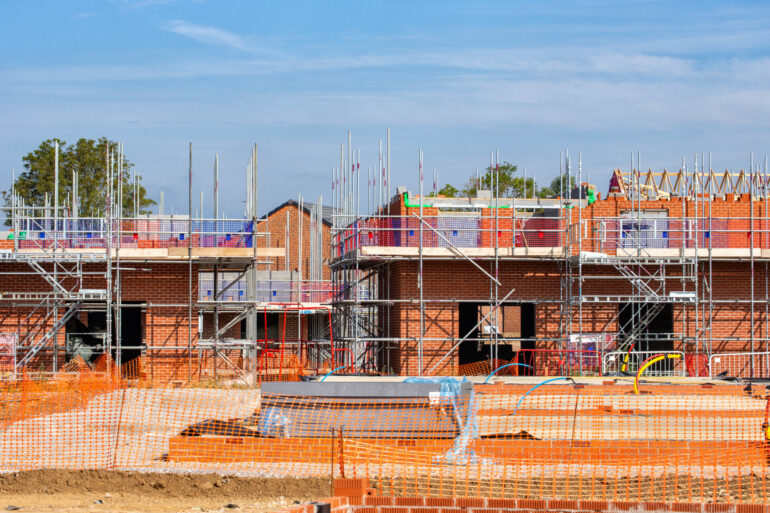If recent figures from the National House Building Council (NHBC) are anything to go by, it would appear things are positive within the new build market.
It recently reported new home completions have returned to pre-pandemic levels, with 40,289 completions in Q2 2022; a 16% increase on Q2 2021.
In turn, the number of new home registrations – the process by which house builders register plots they intend to build on – jumped to 66,855, an impressive 45% increase on Q2 2021. The situation on the ground, however, is not so reassuring.
Interestingly, the NHBC doesn’t put the spike in registrations down to a sudden overwhelming demand for new builds but instead more of a cost-saving exercise from savvy developers.
Under the transitional arrangements for the new energy-efficient measures that came into effect on June 15 this year, developments are exempt if a building notice or full planning application was submitted before the June start date – provided the building work commences before June 2023. If we look at completions, while they might be up on 2021, project starts – a sign of things to come – are seemingly not.
The latest Index of Construction from analysts, Glenigan, reports residential project-starts weakened significantly during the three months to August; falling 38% in value against the preceding three months and 28% lower than a year ago.
New social housing starts performed especially poor, declining 38% against the preceding three months and 40% down on the same time last year. While private housing starts also fell 38% against the previous three months, dropping 24% compared with a year ago.
It attributes the overall fall to ongoing supply chain issues, rising energy costs and the accelerating cost of materials, due to the Russia-Ukraine War. Consequent rising development costs and an uncertain economic outlook are also delaying project starts.
Thrown into the mix is the end of the Help to Buy equity loan scheme, which closes for new registrations this October. Before the regional price caps were introduced in 2021, the scheme was pivotal in not only helping first-time-buyers (FTBs) onto the housing ladder but also enabling them to buy a bigger house than perhaps they might have been able to in the scheme’s absence.
This in response saw developers build bigger – and more expensive – three- and four-bedroom properties. Building smaller starter homes does not generate as much profit, even though this is perhaps where we should be heading.
There can be a tendency for some FTBs to want their first home to be their ‘forever’ home, perhaps as a bi-product of the Instagram culture. Yet as energy bills rise and the cost-of-living bites, we might see FTBs reassess their choices, which could influence developers’ plans.
House price increases – or rather a lack of them – will also play a part. To date, the ongoing increase in costs for housebuilders has largely been offset by rising house prices, which begs the question – what will happen if prices fall, or a more likely scenario, stabilise in the short-term? Developers will need to juggle building enough properties to turn a profit while ensuring supply is not so high it lowers demand and ultimately prices.
Simon Clarke, the UK’s new Minister for Levelling Up, Housing and Communities, certainly has his work cut out if he is to get to the crux of the housing market’s problem – a lack of supply. There are no quick fixes to the multitude of issues that surround the housing market, with every cog in the machine in need of repair. We need a holistic approach and a Minister who understands the market well.
It’s fair to say the initial signs from the new Government have not been inspiring, with the new Prime Minister Liz Truss referring to her own party’s pledge to build 300,000 homes a year as “Stalinist”. She has instead stated that she will look to overhaul planning laws, potentially giving more power to local authorities and less to the Planning Inspectorate.
Let us hope the new Cabinet put as much effort into solving the housing crisis as it has the energy one – as both have a weighty impact on the economic health of the country and those living within it.
Simon Jackson is chief executive officer of MSS




